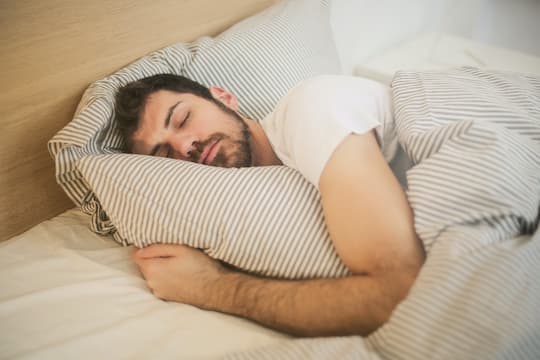Why it feels like exercise doesn’t improve sleep — even though it does.
Exercise has long been recommended as a way of improving sleep — except people often report it makes no difference.
Now, a new study reveals the reason.
Exercise does indeed improve sleep quality, but people do not notice it, researchers found.
Despite falling asleep quicker and experiencing deeper sleep, people do not seem to feel it themselves.
One reason may be that people who do not regularly exercise tend to feel more stress and muscle soreness after occasional vigorous exercise, which might counteract the perceived benefits of sleep.
In other words, exercise improves sleep, but this is counter-balanced by feeling more stressed and aching muscles.
The conclusions come from a study of nine men who did 60 minutes of vigorous activity and had their sleep quality measured.
Their brain waves were monitored, focusing on slow wave sleep or deep sleep, which is critical to feeling refreshed on waking.
The researchers used a computational method called coefficient variation of the envelope (CVE).
Professor Kaspar E. Vogt, study co-author, explained:
“CVE is a novel tool for quantifying sleep depth according to the characteristics of brain oscillations.
We wanted to use it to determine whether exercise would improve or decrease sleep quality, in addition to determining whether short bouts of exercise could exert a lasting effect on metabolic state.”
The study’s results were explained by Insung Park and Javier Díaz, study co-authors:
“The results were surprising.
We found that exercise improved the quality of sleep as measured using objective techniques, while the participants reported no change in the quality of their sleep.”
Rather than occasional vigorous activity, the better option is regular moderate activity.
Professor Vogt said:
“The results of the subjective evaluations of sleep quality indicate that regular moderate exercise may be more beneficial for perceived sleep quality than occasional vigorous exercise, which might not have a subjective effect despite objective improvements in sleep.”
The study was published in the journal Scientific Reports (Park et al., 2021).

